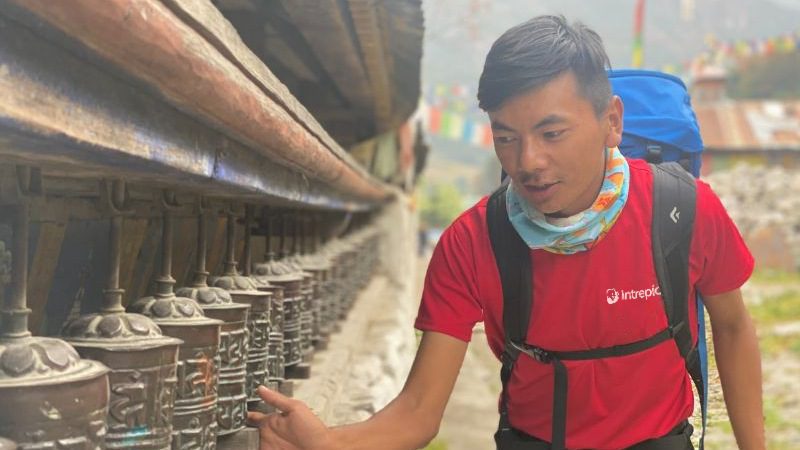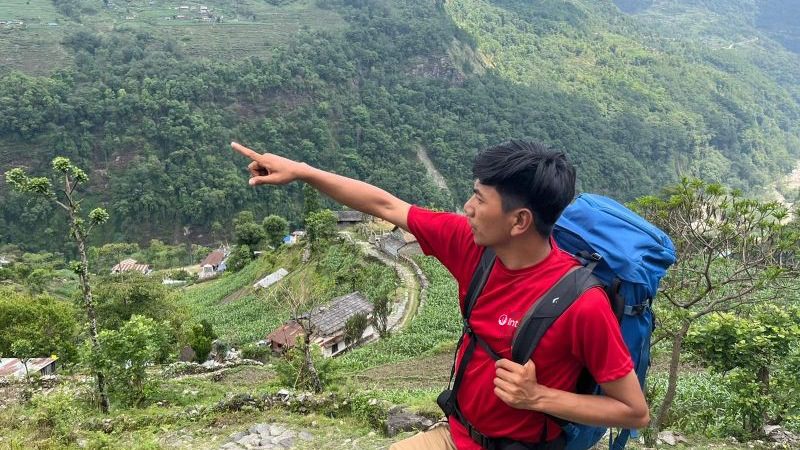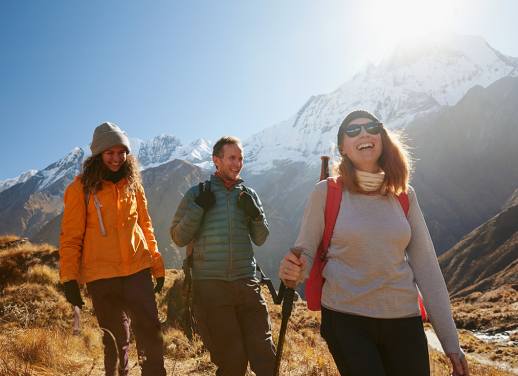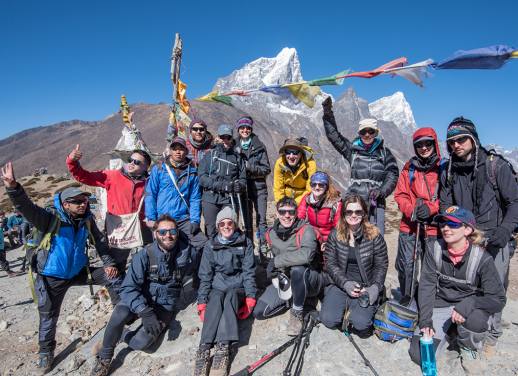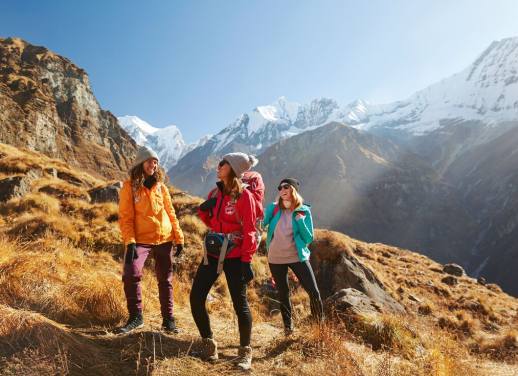It’s 10 am in Kathmandu and Phurba Sherpa has just woken up. He reassures me that he hasn’t been out partying; it’s a rest day, apparently. He’s been trekking for three weeks straight and is enjoying a ten-day break before departing for Gokyo Lakes and Everest Base Camp.
When I last spoke with Phurba, he told me that trekking isn’t about reaching your destination; rather, it’s about creating good moments and memories along the way. In the end, he said, it’s a positive mindset that makes you a success, and in the nine months that have passed since that conversation, Phurba has undoubtedly satisfied every definition of success.
In June this year, Phurba was a winner at the Wanderlust World Guide Awards, a prestigious event celebrating the top guiding talent in the travel industry. Over three thousand guides were nominated for the award, and Phurba was crowned, from a shortlist of eleven (including two other Intrepid leaders), as guide of the year in the outdoor/walking category. Unsurprisingly, he’s thrilled with the result. ‘It’s a big thing for Nepal’s tourism sector,’ he says. ‘Nobody has won this kind of award in the past, so it’s a really good thing for Nepal.’
Nepal: the legendary Mountain Kingdom. A land of imposing peaks and alpine lakes, of communities clinging to impossibly steep slopes. It may come as a surprise, then, that Phurba recently found himself enamoured by the comparatively tame landscapes of Great Britain. He has just returned from a three-week adventure through the UK, one that was spent making memories and creating good moments with both former and future clients.
‘Oh my god,’ he says, when I ask about his trip. ‘A very beautiful country. And the food! I found a very famous English food called Greggs. Do you know it? They make sausage rolls.’
Unfortunately I do know Greggs, better than I care to admit. Their day-old delights do not, to my mind, carry much cultural cachet, but the act of discovery, as many of us can attest to, is part of what makes travel so rewarding. And who am I to say that Phurba’s first bite of a stale sausage roll – smothered in tomato sauce and enjoyed in Manchester’s midsummer rain – is somehow inferior to my first momo (a steamed Nepali dumpling), which was drowned in chilli sauce and downed in the shadow of Everest?
A few of his friends were working as porters with Intrepid and he decided to tag along; ten years later, he’s officially the best outdoor guide in the world.
But the UK delivered more firsts for Phurba than sausage rolls; his first time taking a train, for example, and his first ride on a double-decker bus. ‘It’s totally different from Nepal,’ he says. ‘The people and culture. The landscapes, the food.’ He tells me he found a t-shirt emblazoned with “Sex and sausage rolls”, though he’d be hesitant, he admits, to wear it in Nepal –‘It might be difficult for people to understand.’
What’s not hard to understand is why Phurba has seen such success as a leader; after all, anyone who can summon such enthusiasm for Manchester’s industrial cityscape and a £1.20 sausage roll is bound to be good company wherever you go. He tells me that many Nepali wind up working in the family business – often a restaurant – but his father is a carpenter and his mother a farmer. They’re a small family, meaning the 17-year-old Phurba was free, he says, to do anything he wanted. A few of his friends were working as porters with Intrepid and he decided to tag along; ten years later, he’s officially the best outdoor guide in the world.
‘My English wasn’t good,’ says Phurba, reflecting on his first trip as a porter. ‘I could say hi, hello, but not much else. I was nervous because I’d never been to altitude, but the other porters and guides, who’d been to Base Camp many times, taught me how to pack the backpacks and carry them. They showed me how to walk along the trail.’
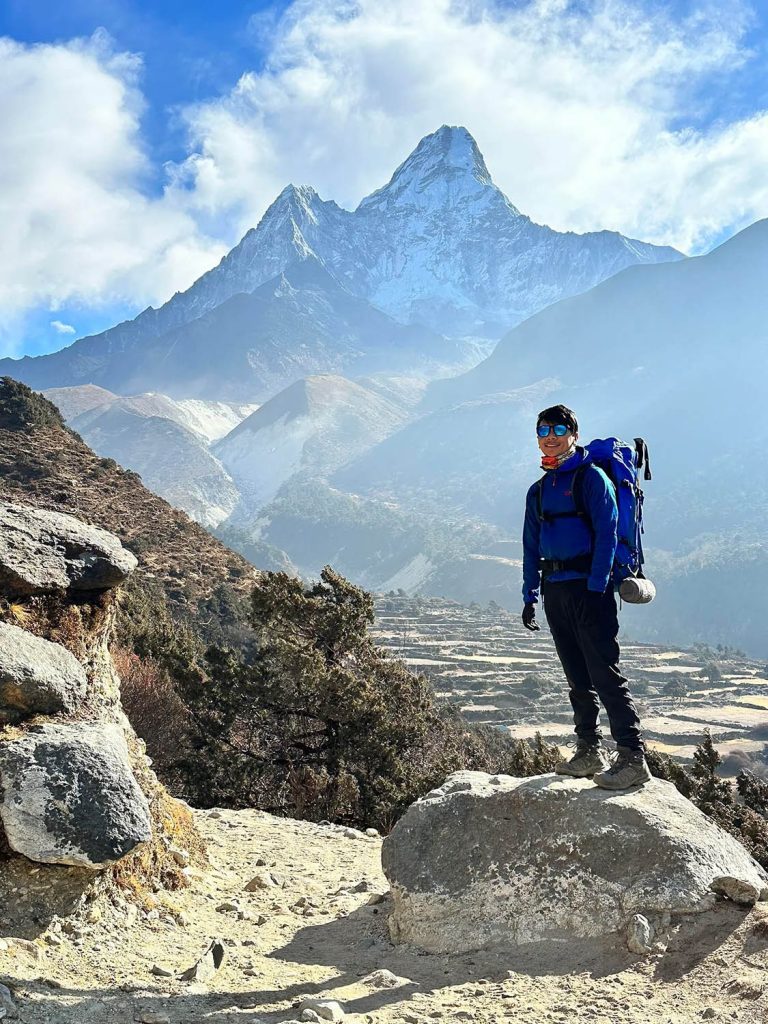
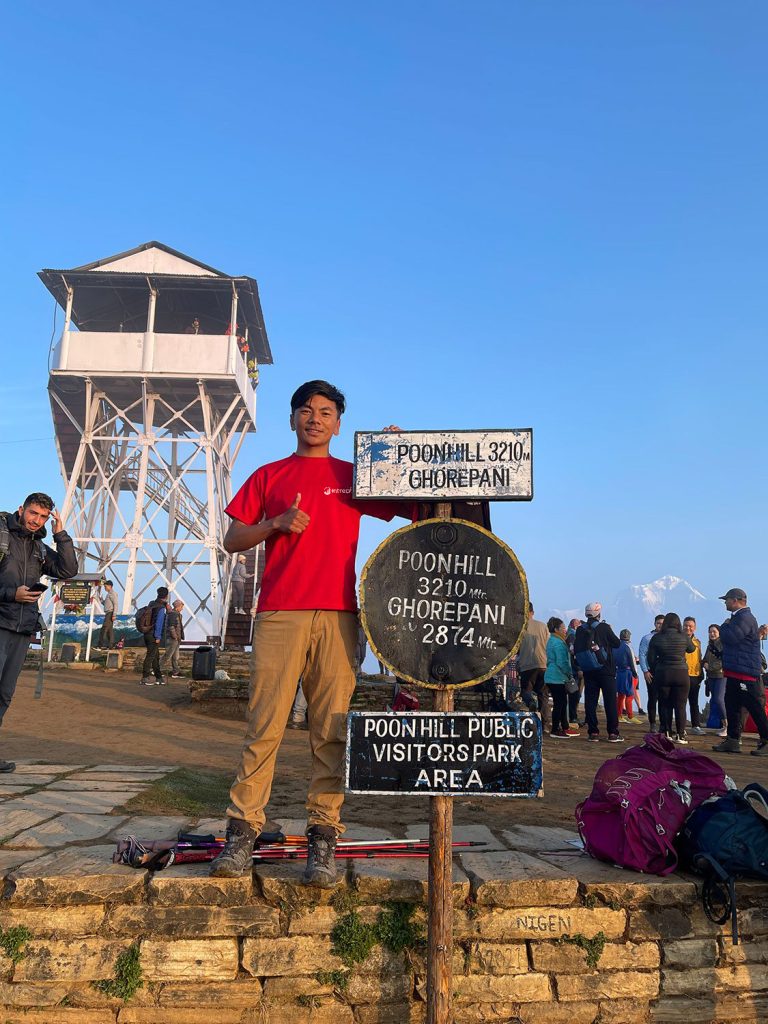
Though Phurba claims that he’d never been to altitude, he did grow up in Lukla, the gateway to Everest, which sits at 2860 metres above sea level. This would satisfy most people’s definitions of altitude, but still, Phurba was worried. ‘The porters usually rest on acclimatisation days,’ he says, ‘but I wanted to practice and see new things, so I asked the leaders if I could join the group. I didn’t speak English at that time, so I didn’t interact with the clients, but I walked with the leaders and assistant guides and learned a lot. They took me higher to help me acclimatise. It was very nice.’
Phurba originally thought that his work as a porter would be nothing more than extra income. He had no grand plans to become a guide, let alone the best guide in the world, but everyone encouraged him to continue and he realised it was an opportunity to learn English. He was given good feedback and promoted to an assistant guide, at which point he committed to becoming a full-blown leader. And though it was challenging, Phurba gave it his best. ‘Whatever you’re doing, you have to give your best,’ he says. ‘I learned so many things from every leader and guide and it’s been a beautiful ten years, this time in tourism.’
Phurba’s first trip as a leader, in October 2018, was fully booked. ‘I was nervous and sweating a lot,’ he says. ‘Twelve different people, twelve new faces, but it was okay once we got on the trail.’ A great success, save for the fact that one person didn’t make it to Base Camp; and yes, Phurba remembers everyone who didn’t make it. When I show him a photo of a friend, whom Phurba had guided over eight years ago, he can immediately recall that she was forced to turn around at 4400 metres. ‘I was an assistant guide,’ he says. ‘She is from Australia and her husband from South Africa, I think, or Spain. They’re very nice.’
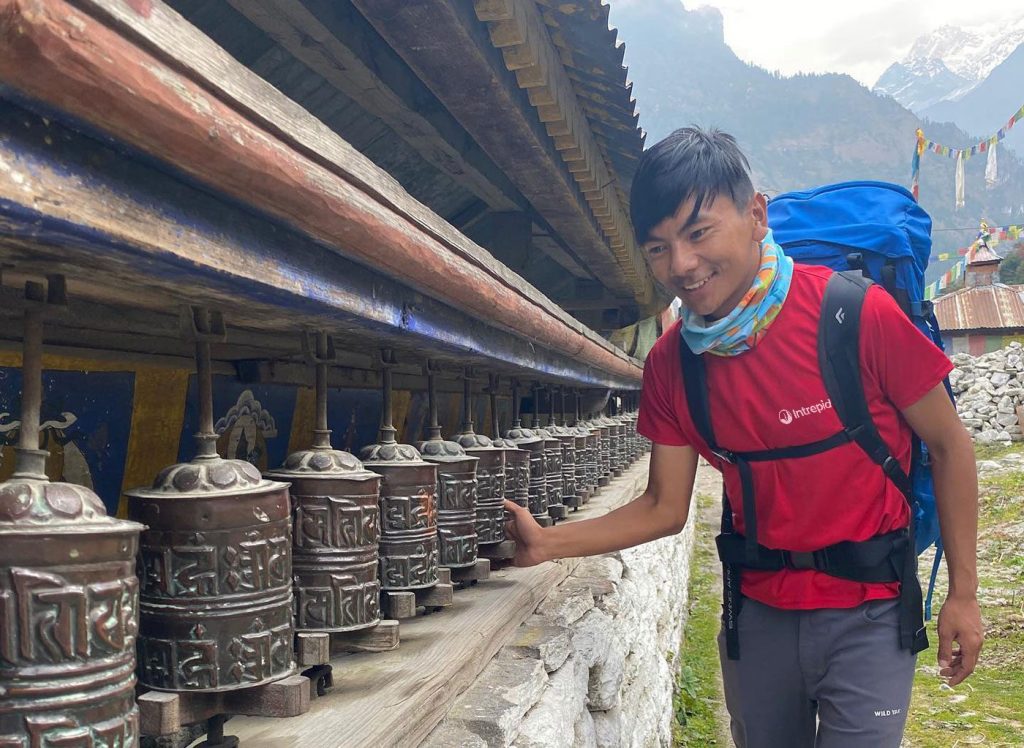
It becomes obvious, in moments like these, how much Phurba cares about his clients. This is reflected in the number of travellers who stay in touch with him on social media, but he’ll be the first to argue that there’s more to being a good guide than remembering people. ‘You have to have patience,’ he says. ‘And good communication, and patience again. Wherever you’re working, in any job, you have to be patient. And give your best. It takes time, too. Sometimes people want to become a leader very quickly, but this doesn’t work. If you want to be the best tomorrow, or the day after, it won’t work. You need to experience five years, then ten years, and then you’ll be okay. But one year, that won’t do.’
It follows, then, that Phurba has no intention of changing careers anytime soon. He may have reached, with this award, a professional summit of sorts, but every day in the mountains is different. There are more clients to guide, more guides to mentor, and in a couple of years he hopes to return to the UK, presumably for more sausage rolls.
He remains hopeful, too, for the future of Nepal’s tourism sector despite how difficult the past few years have been. Many young Nepali have left to find work overseas, including Phurba’s brother, but he tells me that those who remained positive are still here, still working hard. And in the words of Phurba Sherpa – the world’s best outdoor guide – it’s a positive mindset, in the end, that makes you a success.
This story originally appeared in Pat’s People & Places Substack. To visit Phurba’s backyard, check out our Everest Base Camp Trek and others in Nepal.

